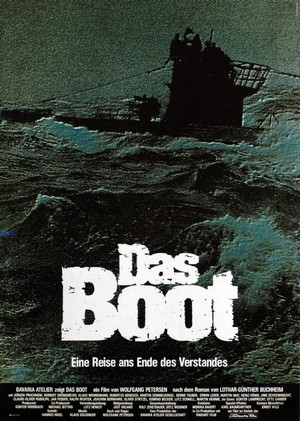
Das Boot (1981)
De Andere Kant van de Oorlog / The Boat

Raiting: ![]() 8,4 /10
8,4 /10
Genre: War
Director: Wolfgang Petersen
Stars: Jürgen Prochnow, Herbert Grönemeyer and Klaus Wennemann
Country: West Germany
Release date: 17 September 1981
Length: 149 minutes (theatrical version) / 209 minutes (director's cut) / 293 minutes (originele Duitse miniserie)






